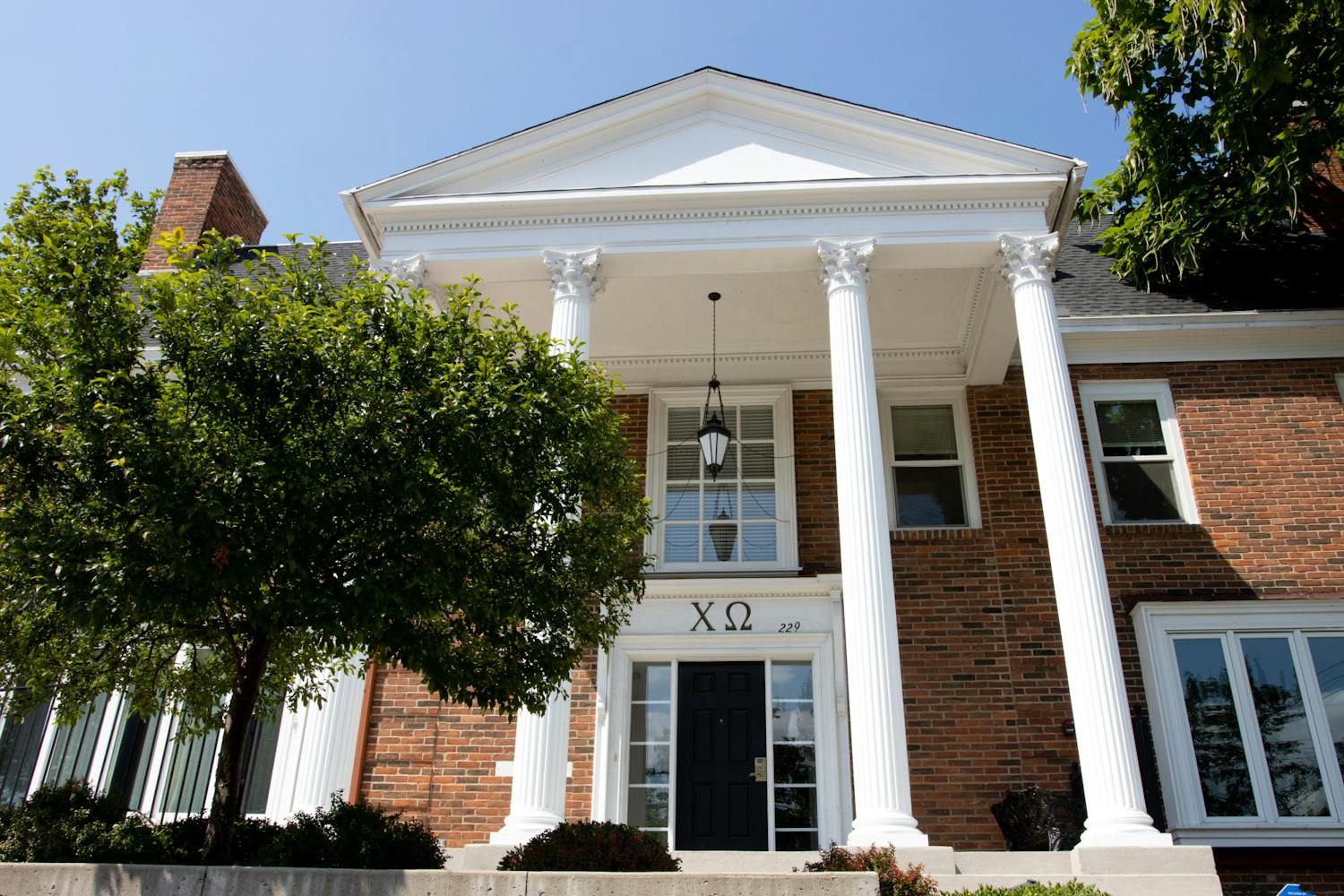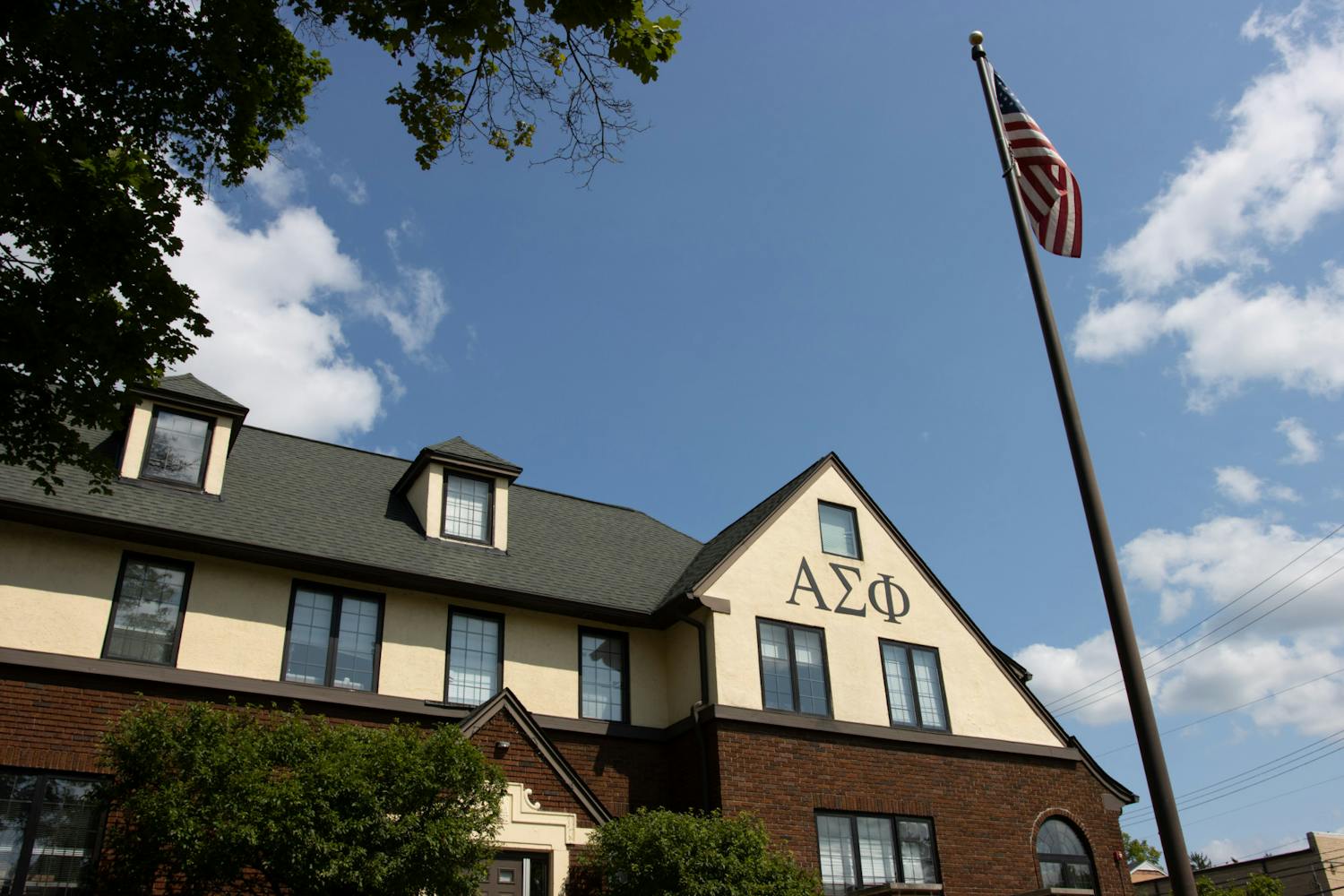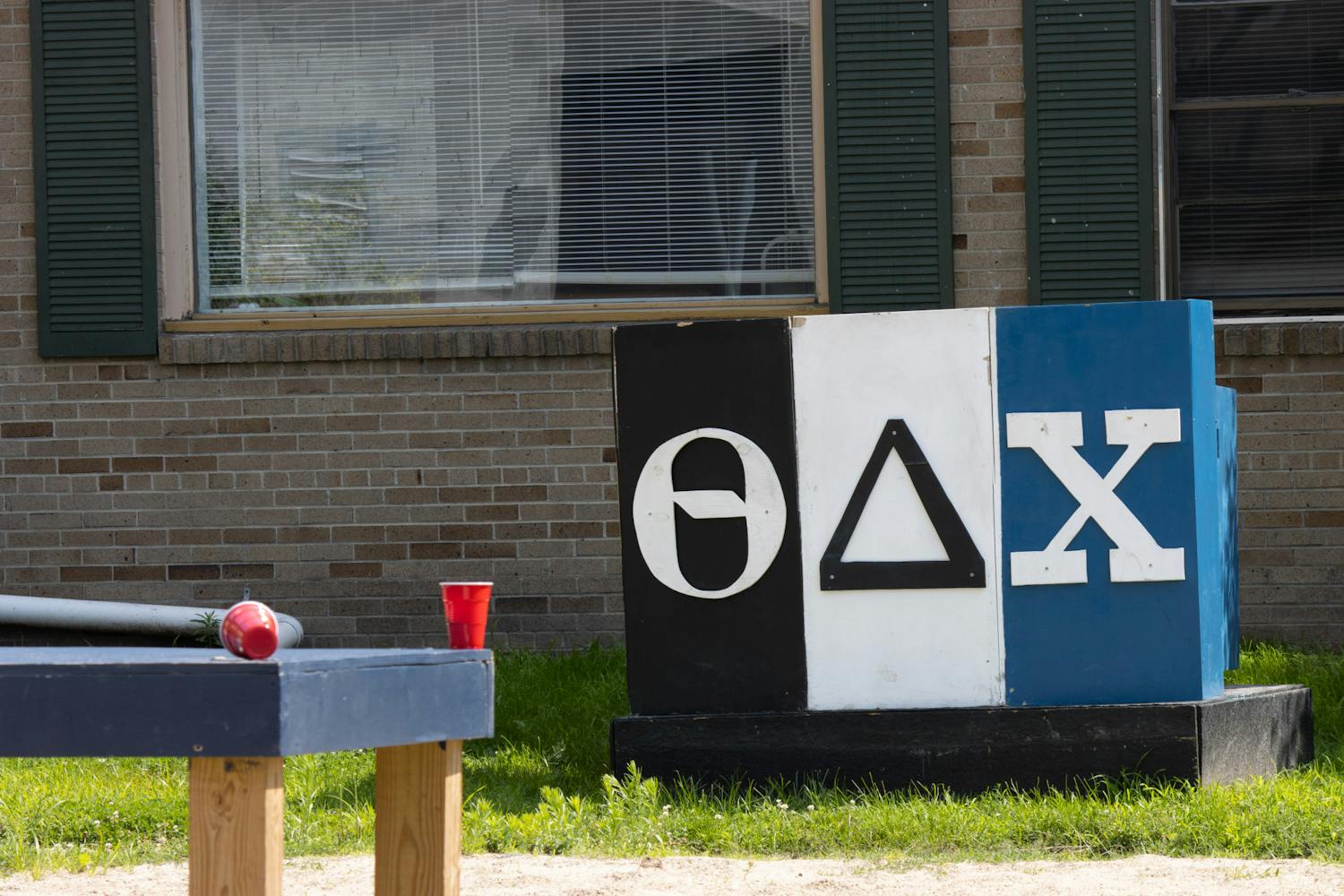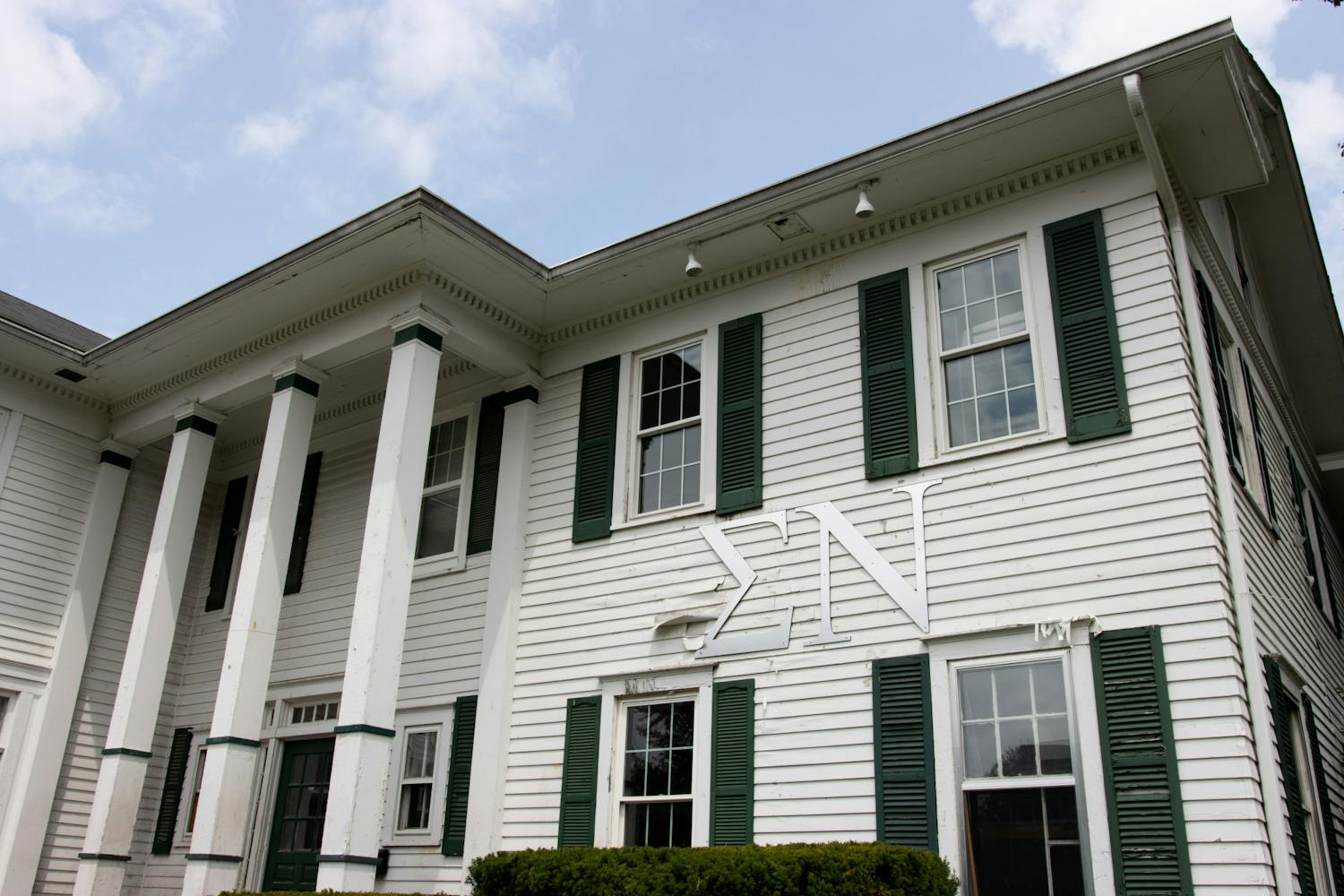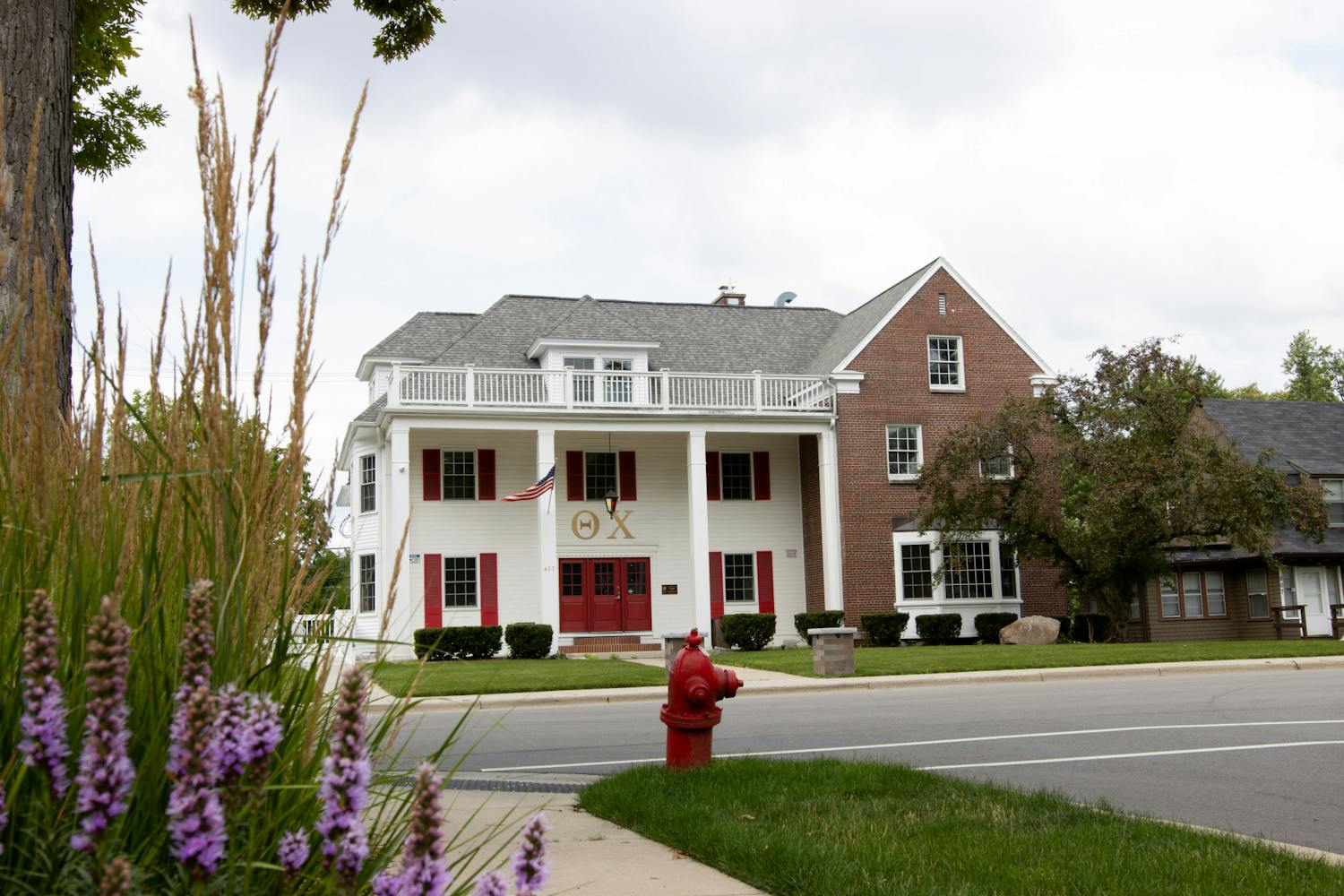The biggest non-academic group at MSU is the fraternity and sorority life, or FSL. Of all MSU students, 14% are involved in FSL as part of one of the 62 fraternities and sororities that are present on MSU’s campus. There are 38 fraternities and 24 sororities available for students to join.
There are fraternities and sororities for everyone. Some Greek organizations are social groups designed to help people meet friends and develop professional contacts while others are focused on philanthropy and community service projects.
Professional fraternities and sororities help connect students studying the same subject, such as engineering or medicine. Culturally-based FSL organizations at MSU help connect students of the same background to find a like-minded community on campus.
There are four student-run councils that oversee FSL life at MSU; the Interfraternity Council, or IFC; the National Panhellenic Council, or NPHC; the Multicultural Greek Council, or MGC; and the Panhellenic Council, or PC.
Interfraternity Council
The IFC oversees 28 fraternities on Michigan State’s campus that provide students with an opportunity to build social and professional relationships during their undergraduate years at MSU. The fraternities under IFC offer a wide variety of options for students, from frats focused on professional development to frats that are focused on building friendships and hosting parties.
“I would say there's really a fit for anyone who wants to join or potentially look at joining,” IFC President William Bulkowski said. “There's a lot of places that someone could go and fit in there, definitely.”
Bulkowski said that he got involved with FSL as a freshman because he wanted to meet friends and follow in the footsteps of his parents who were in Greek life as well.
“That's why I joined — because I wanted those opportunities,” Bulkowski said. “I wanted that networking, I wanted a good group of friends that I can hang out with.”
Bulkowski said that he is aware of the negative connotation associated with FSL and the problems that were caused by Greek Life during the 2020 fall semester during the second wave of the pandemic, but believes the positives of IFC fraternities outweigh the negatives.
“Obviously, every group of people is going to have their problems and whatnot, and there's going to be bad apples in the bunch,” Bulkowski said. “However, there's a lot of good that IFC chapters and IFC itself does for the community. Every year, we host Greek Week, which is a huge philanthropy event, which is something that's pretty significant and pretty powerful within a local community.”
Panhellenic Council
The Panhellenic Council is the governing body for 14 sororities at MSU. Much like the IFC, the sororities within the PC span a wide variety of interests from career development to building a tight-knit community within MSU’s massive ecosystem.
The Panhellenic Council is preparing for one of their largest recruitment events this fall with two new classes of students arriving in East Lansing for the first time ever.
“We definitely have a lot of events and things planned,” Vice President of Community Relations for the Panhellenic Council Grace Anderson said. “We're very excited to be planning for a more typical semester and things like that, and building on everything that we were able to accomplish during the pandemic. We're hoping for a really successful recruitment.”
The recruitment process for sororities in the PC will be conducted in a hybrid manner, with some in-person events and some events conducted over Zoom. All events after recruitment, including philanthropy events, will be conducted in person, according to the PC president Ryan Vogel.
"Each of our chapters will be able to hold philanthropic events, they attend other Greek councils' philanthropy events, and we have council events as well, such as Greek Fall Welcome, Safe Halloween, Greek Week, where we're able to raise money for the local East Lansing community,” Vogel said. “We were able to do that over the pandemic as well, but we're excited to be able to do a little bit more when things are in person.”
The biggest change for this year’s recruitment is sororities that are a part of the PC will have to provide financial transparency forms to all recruits so new members fully understand the financial commitment before they join.
Support student media!
Please consider donating to The State News and help fund the future of journalism.
“Each of our incoming potential new members will get a financial transparency form, where they will receive information on individual chapters' dues, and what it looks like to be a member of that chapter,” Vogel said. “Once you're an initiated member of a chapter, you're able to apply for financial grants and payment plans and scholarships that can help ease some of the daunting financial costs that a lot of people might have worries about because we never want the finances to be a reason why someone doesn't join our community.”
Multicultural Greek Council
The Multicultural Greek Council oversees 11 fraternities and sororities that represent FSL groups focused on multicultural or ethnic groups. MGC organizations are smaller in number of members than fraternities or sororities in either of the other three Greek governing councils, meaning that lasting connections between members can be easier to forge than some of the massive fraternities and sororities in the IFC and PC.
“That is made up of many different organizations that come from different backgrounds, as in like it can be cultural backgrounds or like gender identity, just anything in general,” MGC President Angelica Pablo said. “The different organizations have their own principles, their own philanthropies that they go by, either it can be chapter wise or nationally as well.”
The focus on identity separates MGC organizations from the IFC and PC because the MGC organizations have a common trait that brings the members together, whether it is sexual identity or race.
“We're made up of Asian-interest sororities, an LGBTQ fraternityand then a Hispanic-interest sorority and fraternity,” Vice President of MGC Philanthropy Sujin Lee said. “So these groups, not only are they sorority and fraternity, but they're also organizations that promote a certain identity and specifically embrace that through their organization. That's just kind of like how we are different from IFC and PC who are majority white, and then NPHC who are a majority Black.”
Lee and Pablo both decided to rush a MGC sorority during their freshman year because they were looking for a community at MSU that shares life experiences based on their cultural background.
“We live in a primarily white country,” Lee said. “Everyone is always just wanting that embrace of that Asian-American community that they haven't felt before. It's like, they've never been around other Asian-Americans growing up. Usually they're like, maybe one, five, 10 out of their city. So, when they come to MSU, when they come into our sorority and they're like, 'Oh my god, that these people are like the same as me.’”
Another thing that is present in MGC organizations is an abundance of leadership positions. Since the fraternities and sororities are smaller than those in other councils, there are plenty of opportunities for MGC members to get involved in Greek leadership and build professional experience.
“Something that I know that I probably wouldn't have done is be in this position right now,” Pablo said. “Never in a million years have I thought that I was gonna be a president of a council. Like ever. That never crossed my mind. So it's definitely new experiences and new opportunities. And I really like it.”
National Panhellenic Council
The National Panhellenic Council, much like the MGC, offers identity-based membership for nine fraternities and sororities on campus. The NPHC oversees traditionally African-American fraternities and sororities at Michigan State.
The organizations are a part of a national group of traditionally African-American fraternities and sororities that focus on camaraderie, education and philanthropy within East Lansing. The organizations hold a number of philanthropy events in the East Lansing community and scholarship balls to help students in the groups to fund their membership and schooling.
The NPHC did not respond for comment before publication.
This article is a part of our Welcome Week print issue. The full issue can be viewed here.
Discussion
Share and discuss “A guide to Michigan State's fraternity, sorority life” on social media.
